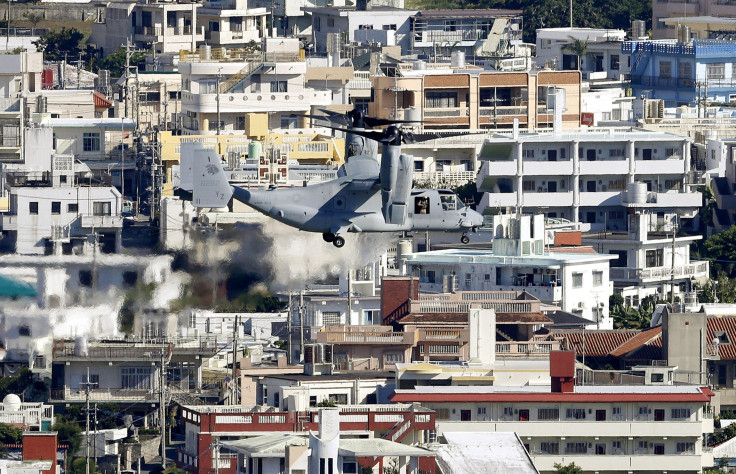US-Japan Defense Relations: Japanese Want Marines Off Okinawa, But Will It Stop North Korea, China?

A Japanese think tank released a study that showed the United States military could depart the island of Okinawa and still maintain its stronghold or presence in Asia and the Pacific as the two countries jostle over the movement of a base and building of a runway, American military newspaper Stars and Stripes reported earlier this week.
The New Diplomacy Initiative, located in Tokyo, announced its findings at a press conference where professors, reporters and one former defense official explained that the runway’s construction could put U.S. and Japan relations in jeopardy.
The study focused on the presence of the 31st Marine Expeditionary Unit, the Marine Corps Air Station Futenma and its shift to north to the village of Henoko, where a runway in Oura Bay is expected to help the U.S. military move to the new base and keep its foothold in Eastern Asia as tensions with China and North Korea rise over the South China Sea and nuclear weapons proliferation, respectively.
However, the study found that if the Marine unit was completely moved off the island the runway would not need to be built and one professor who was part of the study stressed the importance of another base, Kadena Air Base, to Japan’s security rather than a new one. It’s located to the north of the current Futenma base.
“When it comes to the U.S. and China, I think the naval and Air Force presence is most important,” Akihito Sado of Chukyo University said.
Sado also added that relations between Japanese and the U.S. could be further strained if the runway construction goes through, with the potential to deepen long-standing issues about the U.S. military presence on its ally’s land.
Most recently, 22,000 Japanese residents living near the Kadena base were awarded $267 million for noise pollution by the Naha District court, but the request to ban late night and early morning flights were simultaneously denied, The Japan Times reported. The heavy penalty was leveled against the Japanese government.
The U.S. began construction on the new base earlier this month despite more than two decades worth of protests from residents, according to Military.com.
© Copyright IBTimes 2024. All rights reserved.





















